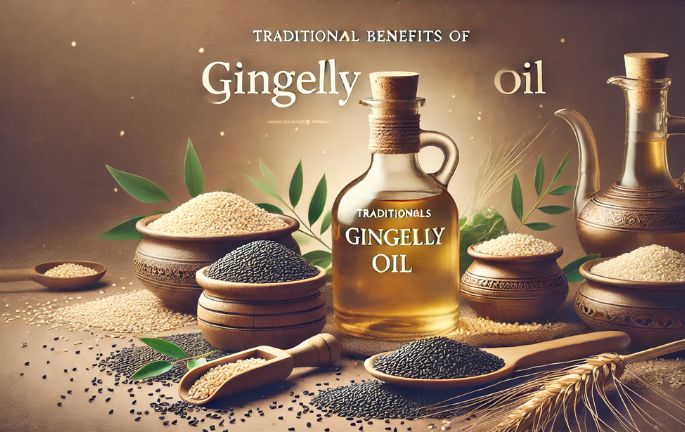
Gingelly oil, also known as sesame oil, is one of the oldest oils used in Indian culture, particularly in Ayurveda and Siddha medicine. This nutrient-rich oil is packed with antioxidants, vitamins, and minerals that support various aspects of health. From improving skin health to boosting heart function, cold-pressed gingelly oil is a powerhouse for those looking to lead a healthy lifestyle.
Gingelly oil is extracted from sesame seeds using a traditional cold-pressing method. This method retains the oil's natural nutrients and flavor, making it more beneficial than refined oils. Cold-pressed gingelly oil has a distinctive flavor and aroma, making it popular in South Indian cooking.
Let’s take a closer look at some of the health benefits of using cold-pressed gingelly oil:
Gingelly oil can be used in a variety of ways in cooking and skincare. It is excellent for sautéing, deep-frying, and dressing salads. In skincare, it can be applied directly to the skin for hydration, used in massages, or added to face packs for extra nourishment.